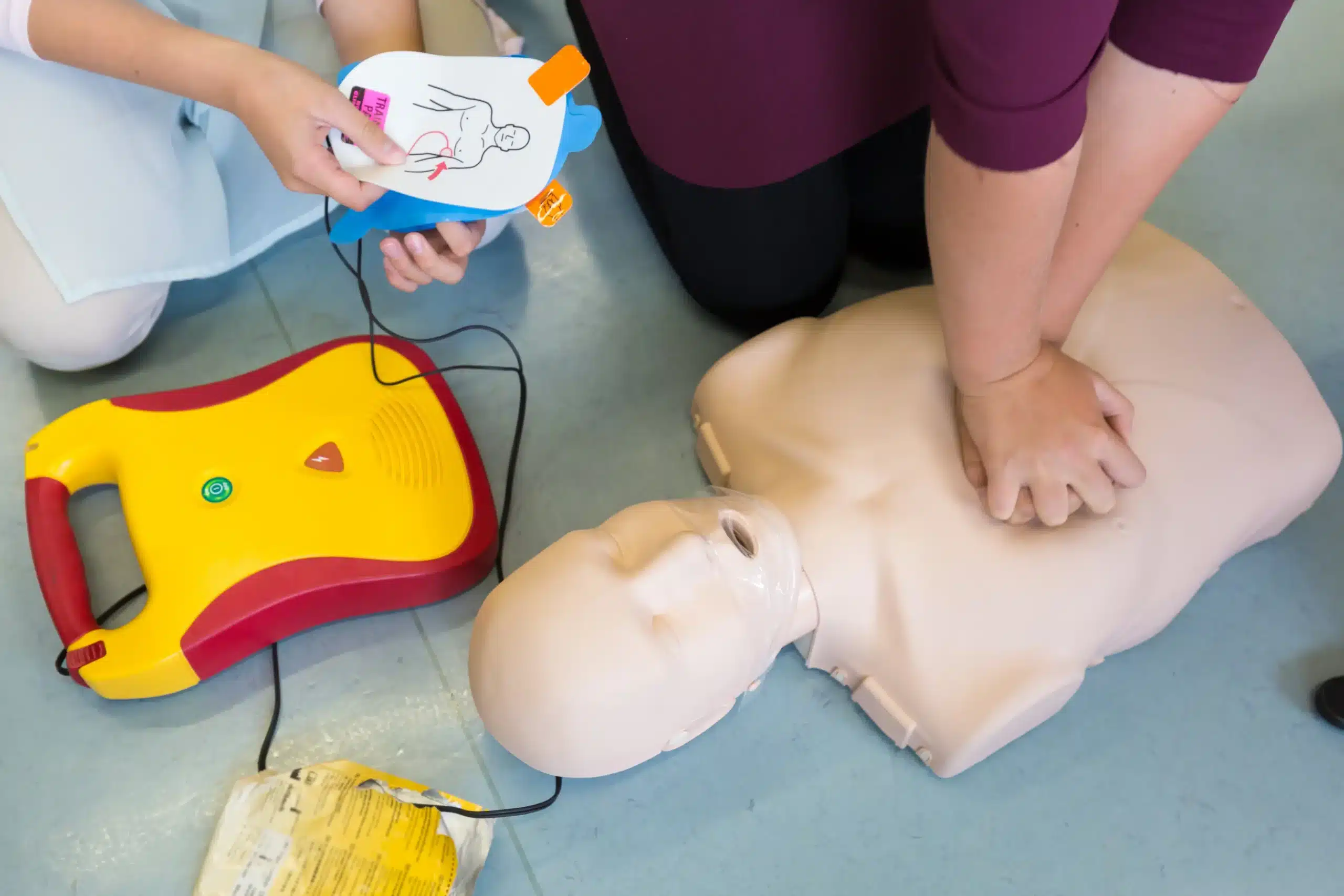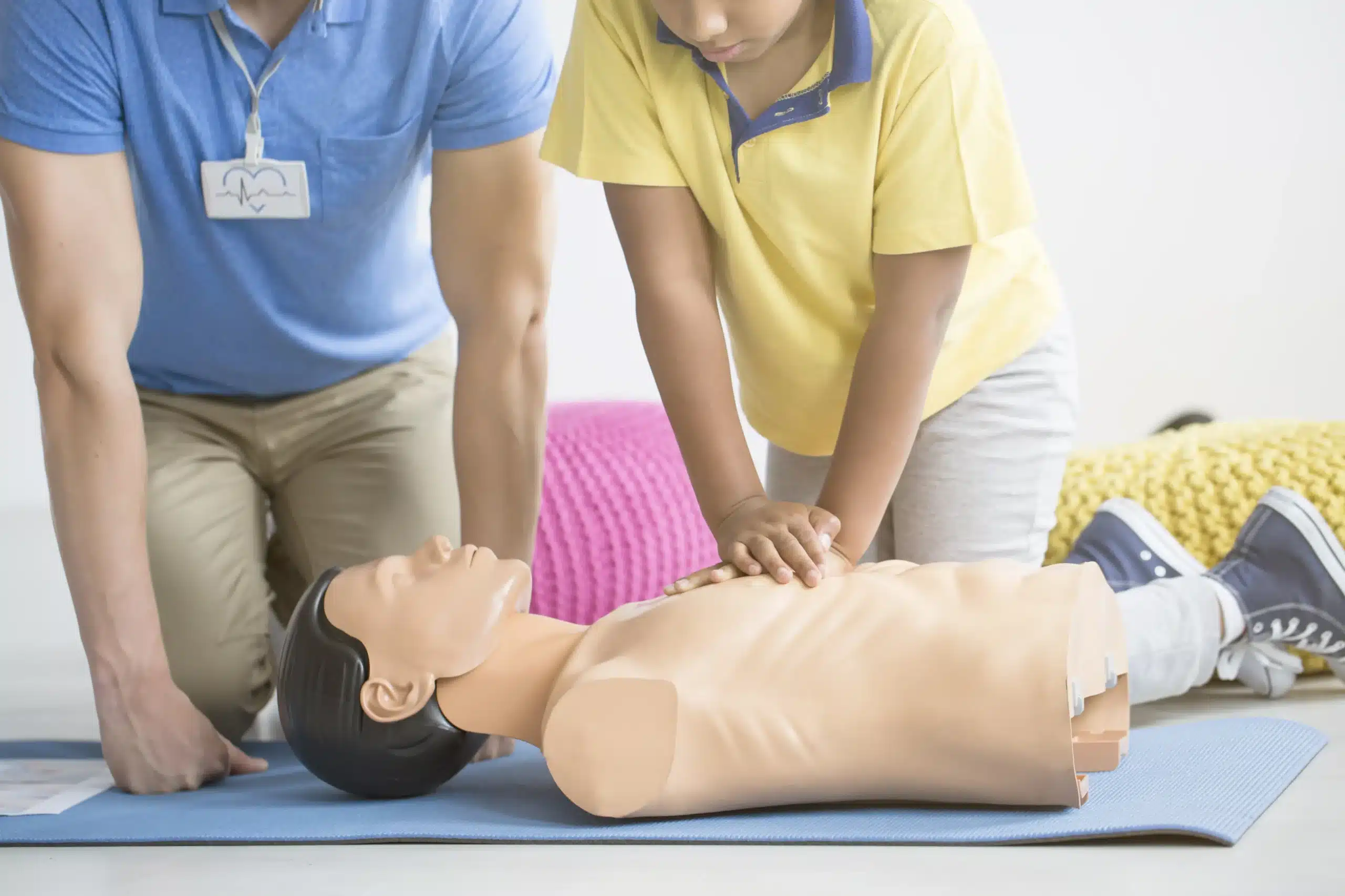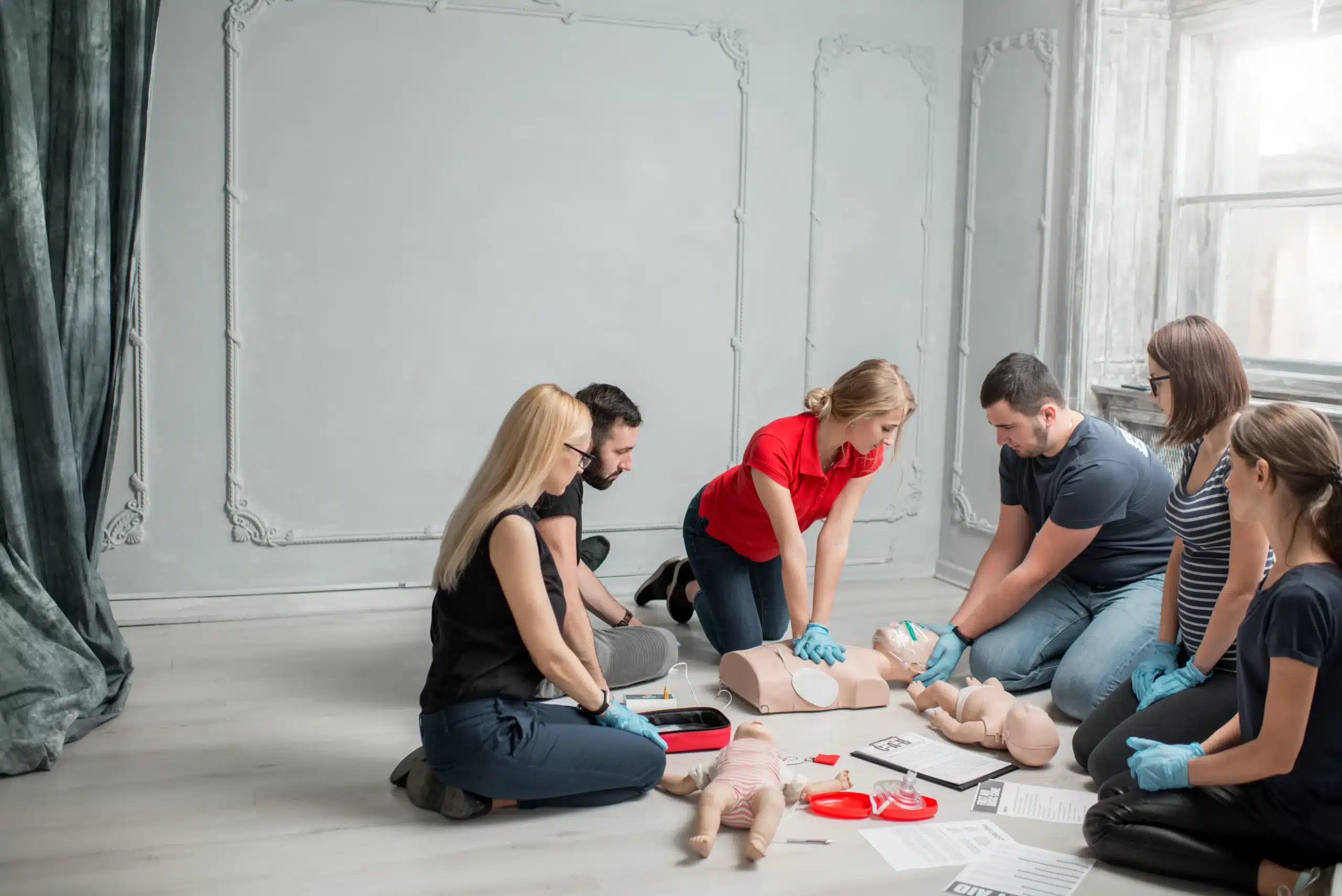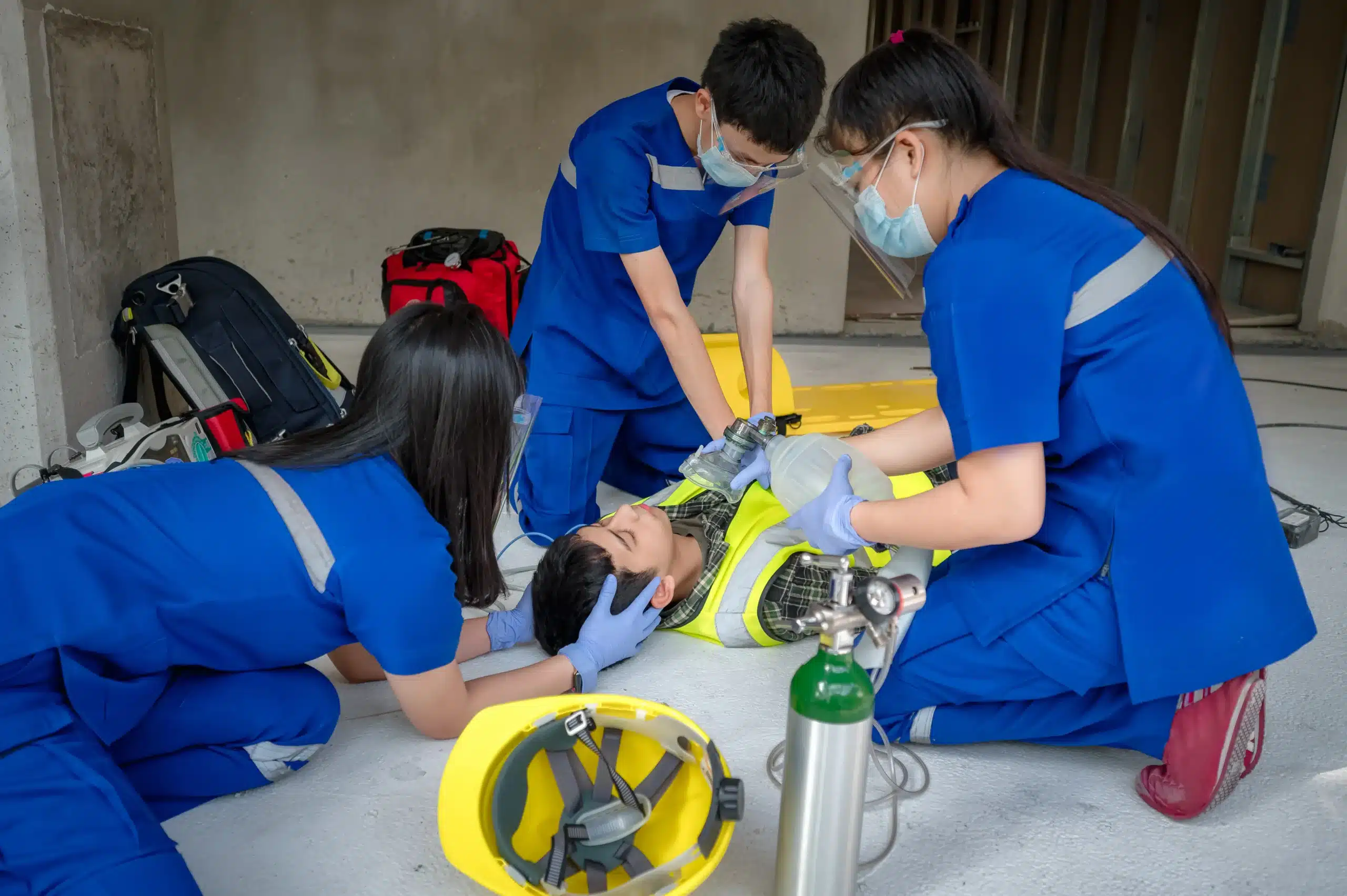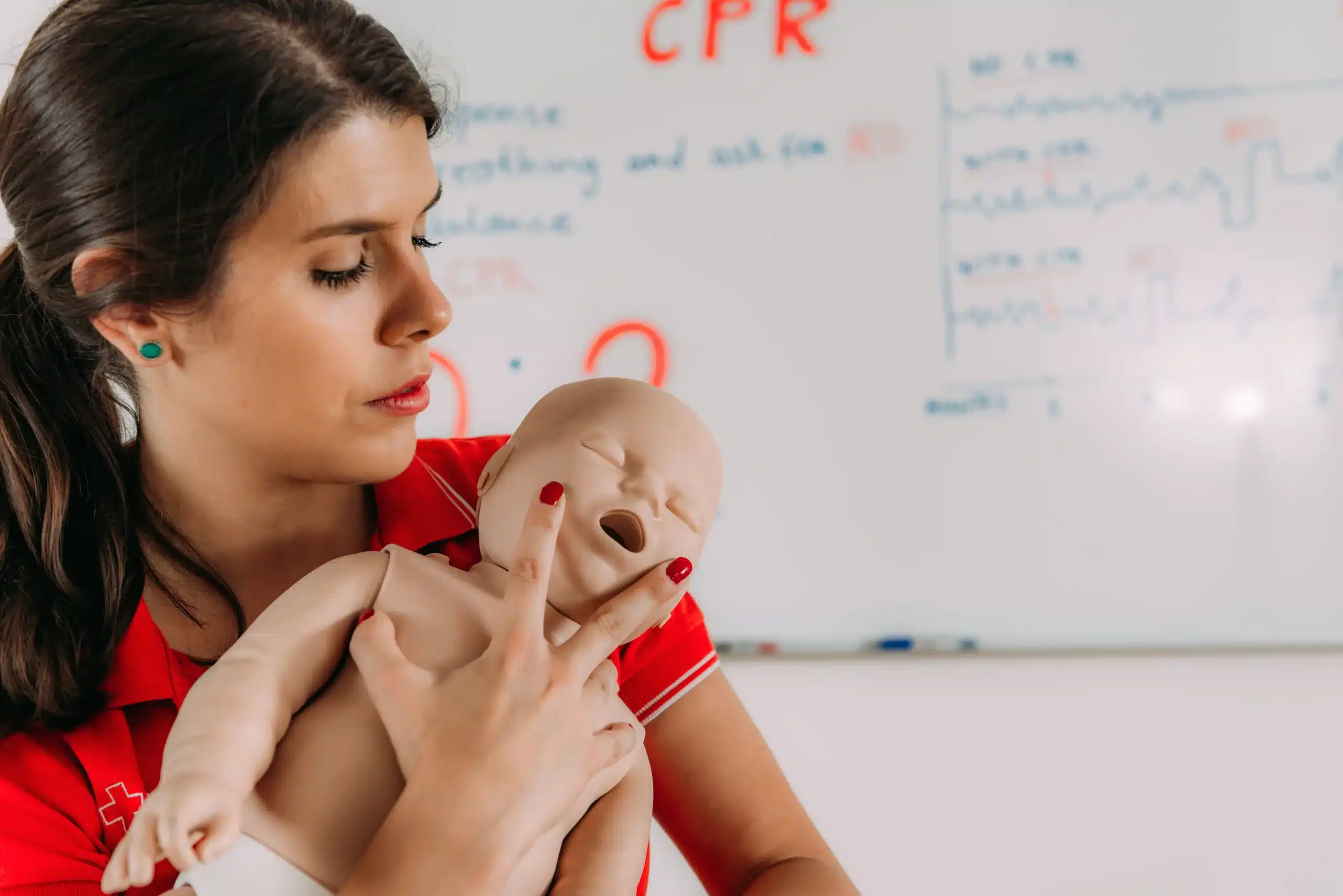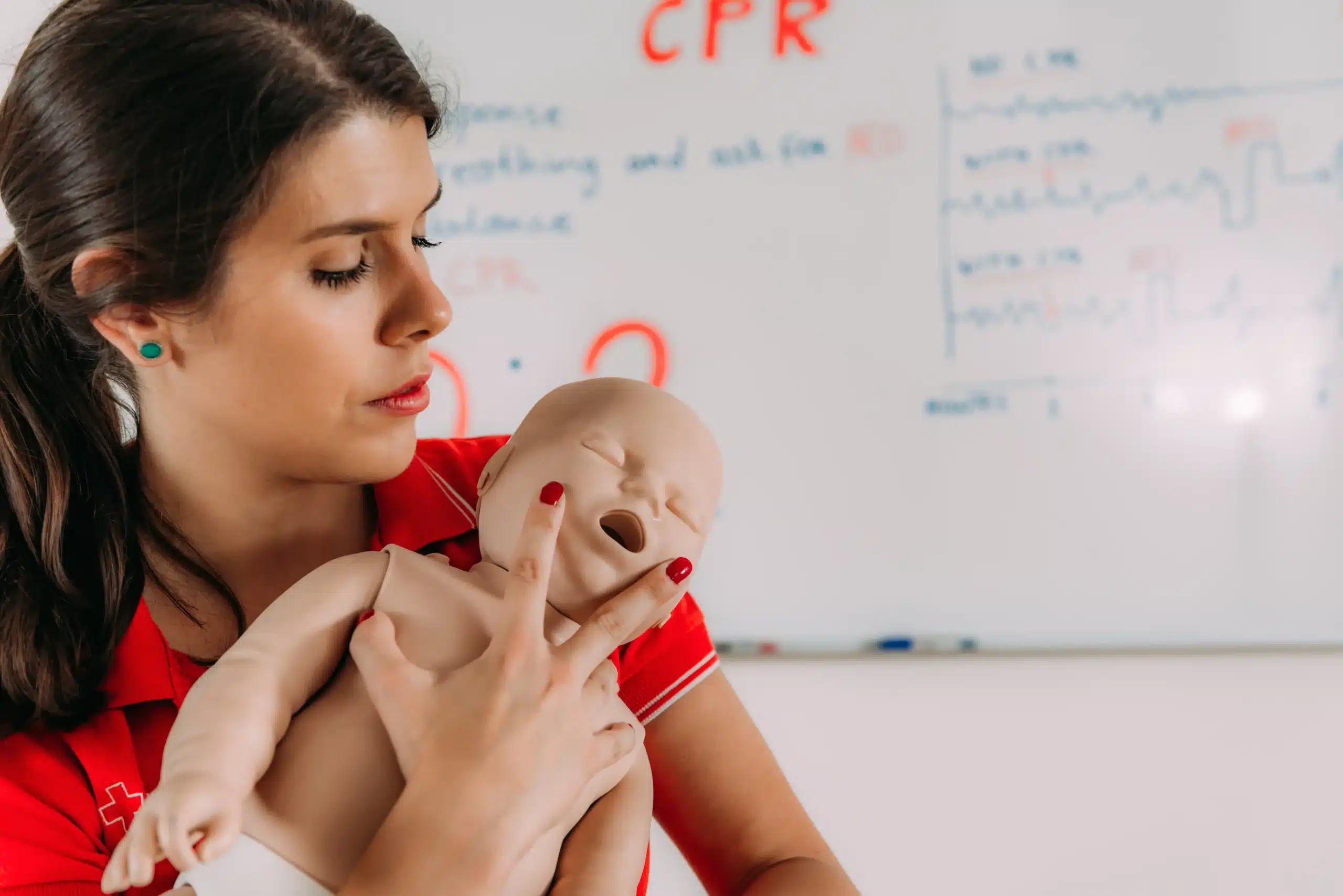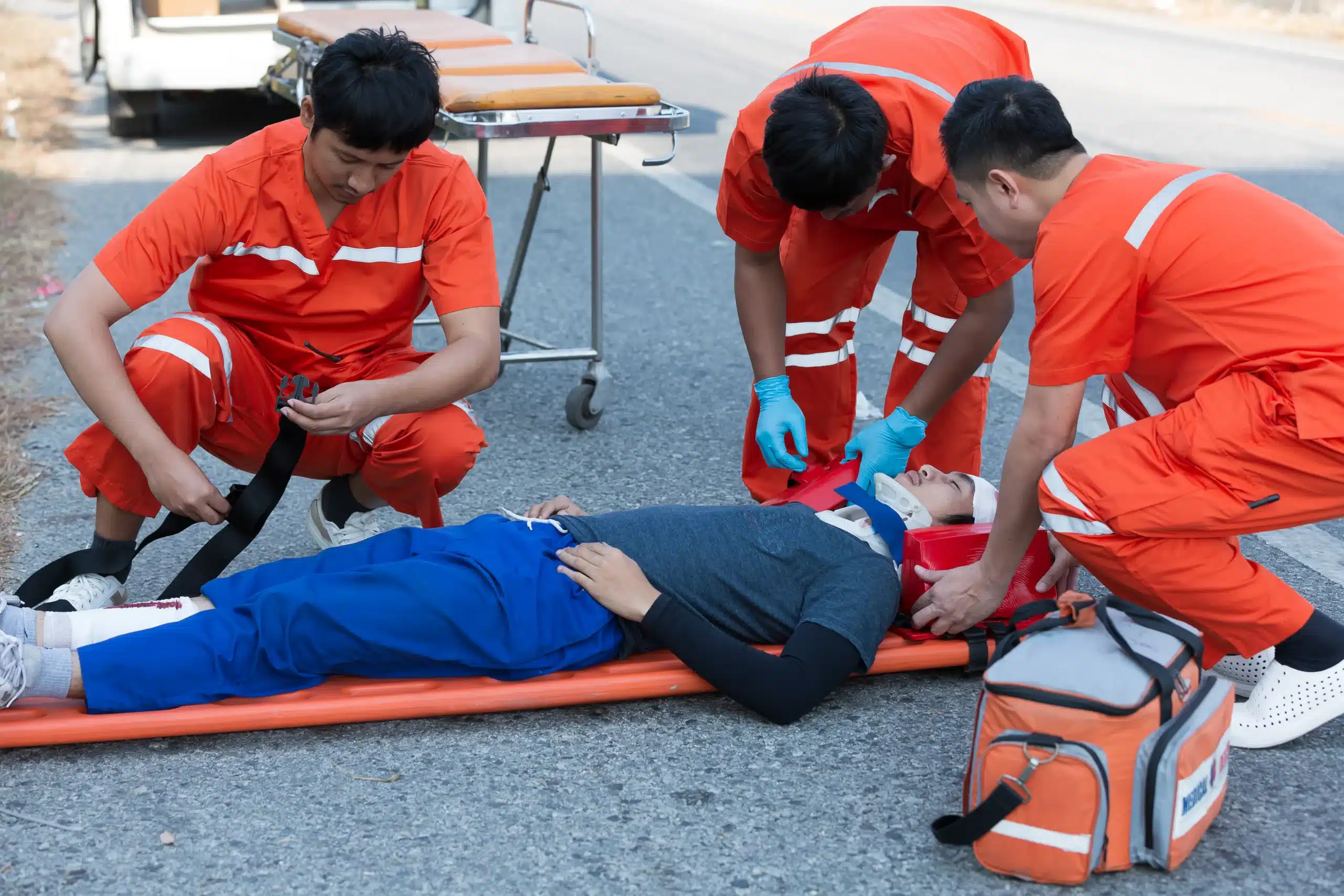Being prepared for emergencies is empowering. Knowing you can provide assistance in a critical situation brings peace of mind. And in Carmichael, maintaining up-to-date CPR skills is easier than you might think. This guide is your go-to resource for CPR renewal in Carmichael, offering practical advice and helpful resources for residents of Carmichael, Rancho Cordova, and Fair Oaks. We’ll explore the various CPR renewal courses available, discuss the importance of choosing the right certification, and provide tips for maintaining your skills between renewals. Whether you’re a seasoned healthcare professional or new to CPR, we’ll equip you with the knowledge and confidence to respond effectively in an emergency.
Key Takeaways
- Regular CPR renewal ensures you have the most current skills and the confidence to use them effectively. Choose a convenient learning format, whether in-person, online, or blended, to fit your lifestyle.
- Carmichael offers various CPR recertification options, including Safety Training Seminars, Carmichael CPR Classes, and the American Red Cross. Select a provider that aligns with your specific certification needs and budget.
- Maintain your skills between renewals by practicing CPR techniques and staying informed on the latest guidelines. Hands-on practice and awareness of updates are key to confident and effective emergency response.
What is CPR Renewal in Carmichael?
CPR renewal keeps your certification current. It’s required every two years, giving you a chance to refresh your skills and learn updated techniques. Think of it as a tune-up, making sure you’re always ready to respond effectively in an emergency. CPR guidelines can change, and refreshing your knowledge ensures you’re providing the best possible care. For residents of Carmichael, Rancho Cordova, and Fair Oaks, convenient renewal courses are available through Safety Training Seminars.
Why Recertify Your CPR Training?
Recertification goes beyond simply maintaining a valid card. It’s about confidence. Regularly practicing these skills ensures you can perform them confidently under pressure. Plus, renewal courses cover the latest guidelines from organizations like the American Heart Association, keeping your techniques current and effective. This is especially important for certifications like ACLS, which deals with complex cardiovascular emergencies. Staying up-to-date can make a real difference in a crisis.
Who Needs CPR Recertification?
Anyone with an expiring CPR certification needs to recertify. This is often a requirement for many professions, including healthcare providers, teachers, lifeguards, and childcare workers. Even if your workplace doesn’t require it, staying current with your CPR skills is always a good idea. Knowing you’re prepared for an emergency provides peace of mind, both at work and in your personal life. Check with your employer or certifying organization to understand specific recertification requirements. Many industries have regulations about maintaining current certifications to ensure workplace safety. For those working with children, EMSA Child Care Health & Safety training may also be relevant.
Find CPR Renewal Courses in Carmichael
If your CPR certification is about to expire, finding a renewal course in Carmichael is easy. Several organizations and training centers offer convenient options to keep your skills sharp and your certification current. Whether you’re a healthcare professional, childcare provider, or community member, there’s a course that fits your needs.
Safety Training Seminars
Safety Training Seminars offers a variety of American Heart Association (AHA) courses, including BLS, ACLS, PALS, CPR, and First-Aid. They are a woman-owned training center committed to providing high-quality instruction. With a focus on customer convenience, they offer classes seven days a week in Carmichael and surrounding areas like Rancho Cordova and Fair Oaks. Visit the Safety Training Seminars website for their schedule and to register.
American Heart Association (AHA) Courses
The AHA’s Resuscitation Quality Improvement (RQI) program is a popular choice for healthcare professionals seeking BLS, ACLS, and PALS recertification. This program offers a blended learning approach, combining online modules with in-person skills sessions. It’s a streamlined and efficient way to renew your credentials and stay up-to-date with the latest guidelines. Many providers in Carmichael, including Safety Training Seminars, offer RQI courses.
Red Cross Courses
The American Red Cross also provides CPR renewal courses in Carmichael. They offer a range of options, including BLS renewal for healthcare providers. Find a class near you on the Red Cross website or by contacting your local chapter.
Other Local Providers
Beyond Safety Training Seminars and the Red Cross, you can find other local providers offering CPR renewal courses in Carmichael. Carmichael CPR Classes and Bay Area CPR are two examples. When choosing a provider, make sure they offer the specific certification you need (like BLS, ACLS, or PALS) and that your employer or licensing board accepts the certification. Reading online reviews can also help you find a reputable provider with experienced instructors. Learn more about CPR renewal options in Carmichael.
Compare CPR Renewal Costs and Duration
CPR renewal keeps your skills sharp and ensures you’re ready to respond to emergencies. But how much does renewal cost, and how long does it take? Let’s break it down.
Price Ranges by Course Type
CPR renewal course fees vary depending on several factors. Location, course format (online or in-person), and the specific training provider all play a role. For instance, a BLS course at a provider like Berkeley CPR Classes can cost around $120, covering online coursework, the skills test, and your certification card. Expect similar pricing for CPR and first-aid renewal courses. More advanced certifications like ACLS and PALS typically have a higher price tag.
Time Commitment for Renewal Classes
Plan to spend a few hours renewing your CPR certification. Renewal happens every two years, giving you plenty of time to fit it into your schedule. It’s not just a requirement; it’s a chance to refresh your skills and learn updated techniques, as highlighted by CPR Arlington. During your recertification course, you’ll review key concepts and practice your skills, often with a CPR mannequin, according to CPR Certification Austin.
Low Price Guarantees and Group Discounts
Looking to save on your renewal? Many training centers offer a low price guarantee. Safety Training Seminars in Carmichael, for example, offers some of the lowest prices in the area for CPR and BLS renewal. If you’re renewing with a group, such as coworkers or a community organization, ask about group discounts. Some providers, including those offering BLS classes in Carmichael, also have student discounts. It’s always worth checking for deals before you register.
In-Person vs. Online CPR Renewal
When it’s time to renew your CPR certification, you’ll find several learning formats. Each has its own advantages, so consider what works best for your schedule and learning style. Let’s break down the differences between in-person, online, and hybrid CPR renewal courses.
Benefits of Hands-On Training
In-person CPR renewal emphasizes hands-on learning. You’ll practice chest compressions and rescue breaths on a manikin, and an instructor will provide real-time feedback. This hands-on practice is invaluable for building muscle memory and confidence. Plus, it’s a great opportunity to ask questions and learn from your instructor’s expertise. If you learn best by doing, in-person training might be the right choice.
Advantages of Online Flexibility
Online CPR renewal courses offer maximum flexibility. You can study the material at your own pace, from anywhere with internet access. This format is perfect for busy schedules or if you prefer self-directed learning. Many online courses include videos and interactive exercises to reinforce key concepts. However, keep in mind that online renewal typically doesn’t include hands-on practice with a manikin.
Hybrid Course Options
Hybrid courses combine the best of both worlds. You’ll complete the cognitive portion online, then attend a shorter, in-person session for hands-on skills practice and testing. This blended learning approach offers flexibility while still ensuring you get the practical experience needed to perform CPR effectively. It’s a great option if you want the convenience of online learning with the benefits of in-person instruction.
CPR Certifications and Industry Recognition
Choosing the right CPR certification is essential to ensure your skills are up-to-par and recognized by employers. Several respected organizations offer certifications, each with its own strengths. Let’s explore some of the most prominent options.
AHA Certification
The American Heart Association (AHA) sets the standard for CPR training, especially for healthcare providers. AHA certifications are highly regarded and often required for jobs in hospitals, clinics, and other medical settings. Safety Training Seminars, a woman-owned business and authorized AHA Training Center, offers various AHA-aligned courses, including BLS, ACLS, PALS, CPR, and First Aid in Carmichael. These certifications demonstrate a commitment to high-quality training and the latest guidelines.
Red Cross Certification
The American Red Cross also offers widely accepted CPR certifications. They provide various courses, including specialized BLS renewal and recertification programs for healthcare professionals. Red Cross certifications are trusted by employers across many industries.
Employer-Accepted Certifications
While the AHA and Red Cross are among the most recognized, other CPR certifications are also accepted by employers. Research the specific requirements of your profession or target job. Many roles, from nurses and doctors to teachers, lifeguards, and even some hospitality staff, require CPR certification. A valid and recognized certification improves your job prospects and prepares you to handle emergencies. Confirm which certifications meet your employer’s or licensing board’s standards.
Schedule Your CPR Renewal in Carmichael
Getting your CPR recertification in Carmichael is easier than you think. With various course options and schedules, you can find a class that fits your needs. This section covers everything from daily classes to on-site training, helping you find the perfect fit.
Daily Classes and Flexible Hours
Juggling work, family, and other commitments can make it tough to squeeze in extra training. Luckily, several providers in Carmichael offer CPR renewal classes seven days a week. Safety Training Seminars, for example, offers daily CPR and first-aid certification courses in Carmichael and surrounding areas. This flexibility makes it much easier to find a time that works for you, whether it’s a weekday evening or a weekend morning.
On-Site Training Options
If coordinating a group or finding time to travel to a class is proving difficult, on-site training might be the solution. Several organizations bring the CPR renewal course directly to you. In-Home CPR offers this service throughout the Sacramento and San Francisco Bay areas. This can be a great option for businesses wanting to certify multiple employees at once, or for busy individuals who prefer the convenience of learning at home or in the workplace. Professional CPR is another provider offering on-site training in Carmichael for CPR, BLS, and first-aid classes. Contact these providers directly to discuss your specific needs and arrange a training session.
Renew Your CPR Certification
Renewing your CPR certification is straightforward. With the right resources and a little preparation, you’ll be ready to respond to emergencies with confidence.
Choose the Right Course
Finding the right CPR renewal course depends on your specific needs and schedule. If you’re in Carmichael, Rancho Cordova, or Fair Oaks, Safety Training Seminars offers various American Heart Association courses, including BLS, ACLS, PALS, CPR, and First Aid. They are a woman-owned training center and provide high-quality instruction. Consider what certifications your profession requires and choose a course that aligns with those requirements. For those working in childcare, make sure your chosen course covers relevant material, such as the EMSA Child Care Health & Safety guidelines.
Register for Your Course
Once you’ve chosen your course, registration is typically quick and easy. Many providers, including Safety Training Seminars, offer online registration. Check their website for upcoming class dates and times. They offer classes daily in over 60 cities, so finding a convenient time shouldn’t be a problem. If you have questions, contact the provider directly. They can help you choose the right course and guide you through the registration process. Be sure to check for any low price guarantees or group discounts.
What to Expect in Class
CPR renewal courses blend classroom instruction with hands-on practice. Expect to review the latest CPR guidelines and techniques. You’ll practice essential skills like chest compressions and rescue breathing on manikins. This hands-on practice is crucial for building muscle memory and confidence. Don’t be afraid to ask questions – your instructor is there to help you master these life-saving skills. A typical CPR renewal class covers adult, child, and infant CPR, as well as AED use. Some courses also include choking relief training. For healthcare providers seeking BLS renewal, the emphasis will be on American Heart Association BLS guidelines and best practices.
Prepare for Your CPR Renewal Course
Getting ready for your CPR renewal course doesn’t have to be stressful. With a little preparation, you can walk into class feeling confident and ready to refresh your lifesaving skills. This section covers what you need to know before your course, from helpful study tips to what to expect on the day.
Required Materials and Pre-Course Study
While your CPR renewal course will cover everything you need to know, refreshing your knowledge beforehand is always helpful. Reviewing the basics of CPR, like chest compressions and rescue breathing, will help you get the most out of your class. Hands-on practice is key, so if you have access to a CPR manikin, use it! Practicing ensures your hand placement, compression depth, and speed are accurate. Even practicing on a pillow can help build muscle memory. Your instructor will provide any required materials, but reviewing the current CPR guidelines can give you a head start.
Day-of-Class Prep
On the day of your CPR renewal class, remember to arrive a few minutes early to get settled in. Wear comfortable clothing that allows for free movement, as you’ll be practicing physical techniques. Bring a water bottle to stay hydrated, especially during hands-on training. Most importantly, come with a positive attitude and a willingness to learn! Your instructors at Safety Training Seminars are experienced professionals dedicated to helping you maintain these vital skills. They’re there to answer your questions and guide you through the process, so don’t hesitate to ask for clarification or assistance. Take advantage of this opportunity to refresh your skills and learn any updated techniques. CPR renewal isn’t just a requirement; it’s a chance to reaffirm your commitment to helping others in emergencies.
Maintain CPR Skills
Once you’re CPR certified, regular practice and staying up-to-date are key to confidently using your skills in a real emergency. It’s like any other skill—consistent upkeep makes all the difference.
Practice at Home
Hands-on practice is essential for maintaining muscle memory and proficiency in CPR techniques. Regularly practicing chest compressions and rescue breathing builds confidence and reinforces proper form. A CPR manikin provides a realistic way to practice at home. Focus on hand placement, compression depth, and speed—aim for hard and fast compressions to the correct depth. Consistent practice will make these actions feel natural and instinctive when seconds count.
Stay Updated on CPR Guidelines
CPR guidelines and best practices evolve with ongoing research and medical advancements. Renewing your CPR certification every two years ensures you’re incorporating the latest techniques. Renewal classes not only refresh your skills but also introduce any updated protocols, helping you provide the most effective care in an emergency. Staying current with guidelines demonstrates your commitment to providing high-quality CPR and strengthens your preparedness for real-life situations.
CPR Renewal Providers in Carmichael
Several organizations offer CPR renewal courses in and around Carmichael. It’s important to choose a provider that offers American Heart Association (AHA) or Red Cross certification, as these are widely recognized and accepted. Here are some of your options:
Safety Training Seminars
Safety Training Seminars is a woman-owned AHA Training Center offering high-quality AHA BLS, ACLS, PALS, CPR, and First Aid courses right here in Carmichael. They focus on providing convenient scheduling, with classes offered every day of the week, not only in Carmichael, but also in over 60 other cities. Learn more about their CPR and First Aid certification courses. They also offer courses that meet the requirements for EMSA Child Care Health & Safety. Plus, Safety Training Seminars has a low price guarantee, giving you confidence you’re getting good value.
Carmichael CPR Classes
Carmichael CPR Classes offers a variety of CPR renewal options, including BLS, ACLS, and PALS recertification. This makes them a convenient option if you need to renew multiple certifications. They are a good choice for those specifically seeking ACLS renewal in Carmichael.
American Red Cross
The American Red Cross is a nationally recognized provider of CPR and First Aid training. They offer BLS renewal and recertification courses designed for healthcare providers. You can easily find a Red Cross training center near you.
ProCPR
ProCPR offers CPR, First Aid, and BLS classes for individuals and businesses in Carmichael. They provide a range of courses, from basic CPR to more advanced certifications. Visit the ProCPR website to explore their offerings.
National CPR Foundation
The National CPR Foundation provides various CPR and First Aid certification courses, including online and in-person options. Their online courses offer flexibility for those with busy schedules. However, keep in mind that hands-on skills practice is a crucial component of CPR training, so in-person classes are generally recommended.
Related Articles
- CPR Renewal in Rancho Cordova: Your Guide – Carmichael CPR Classes
- CPR Courses in Carmichael: Your Certification Guide – Carmichael CPR Classes
- Find CPR Courses Near Me: Your Complete Guide – Carmichael CPR Classes
- ACLS Renewal Near Me: Your Recertification Guide – Carmichael CPR Classes
- BLS Certification in Carmichael: Your Comprehensive Guide – Carmichael CPR Classes
Frequently Asked Questions
How often do I need to renew my CPR certification? CPR certifications are typically valid for two years. It’s important to renew before your current certification expires to maintain your qualifications.
What’s the difference between CPR and BLS? CPR focuses on the core techniques of chest compressions and rescue breaths for anyone. BLS (Basic Life Support) builds upon CPR, adding skills like using a bag-valve mask and working as part of a team, often in a healthcare setting.
Are online CPR renewal courses accepted? While online courses offer flexibility for learning the cognitive material, they often lack the crucial hands-on practice component. Many employers and certifying organizations require in-person skills testing and validation, even if you complete the coursework online. A hybrid course, combining online learning with in-person skills practice, is a good compromise.
How can I find a CPR renewal course near me? Several organizations offer CPR renewal courses, including Safety Training Seminars, the American Red Cross, and other local providers. Searching online for “CPR renewal near me” is a good starting point. Also, check with your employer or professional organization for recommendations.
What if I let my CPR certification lapse? If your certification expires, you’ll need to retake the full certification course, not just a renewal course. It’s always best to renew before your certification lapses to save time and ensure you’re always ready to respond in an emergency.


